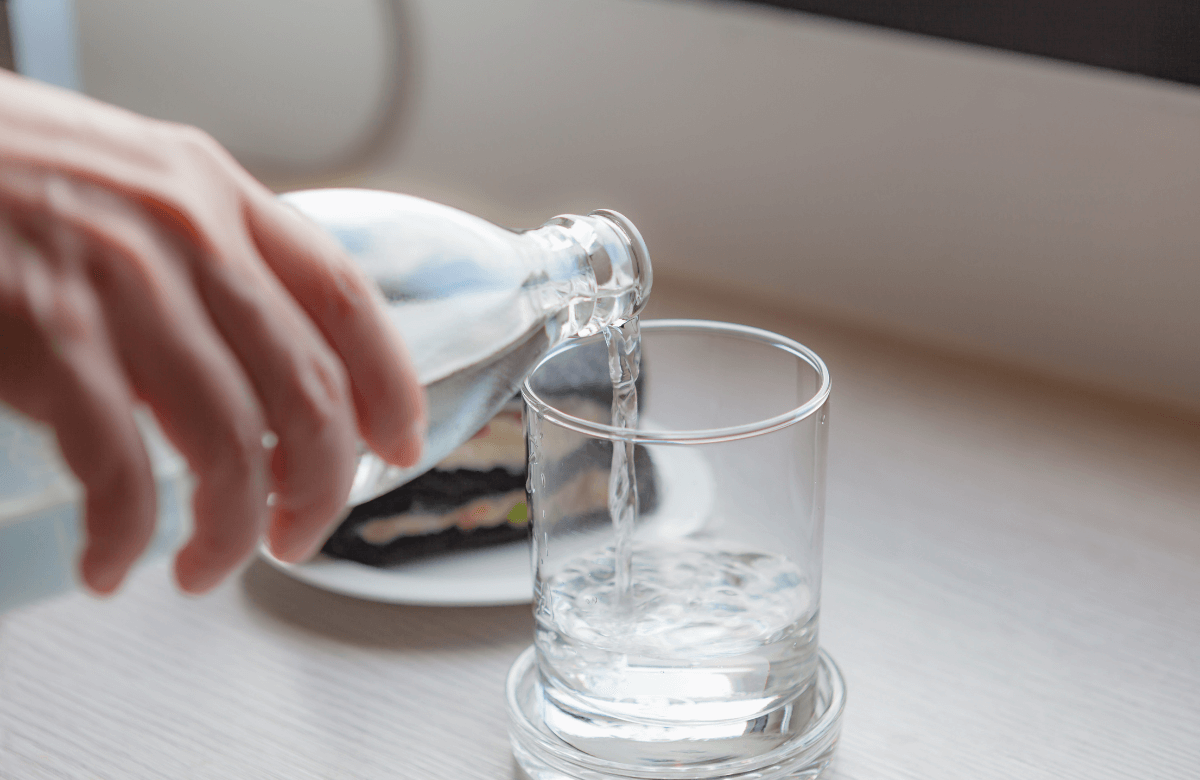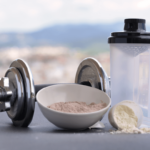Weight gain wouldn’t be a problem if we didn’t have to eat. But because we do, watching what we eat and exercising is the best way to achieve our weight loss goals. Many people have turned to water fasting as a way to help jump-start their weight loss goals.
You may have heard mixed reviews about the effectiveness of water fasting. Some say it’s the best way to lose weight while others warn about the potential risks of such a caloric restriction.
So, is it something you should try?
As we go throughout this article, we’ll attempt to put to rest some myths about water fasting and make sure you fully understand the different nuances of it before you try it. Let’s dive in!
Jump to:
- What Is Water Fasting?
- How Do You Water Fast?
- What Can You Eat During a Water Fast?
- 5 Possible Benefits of Water Fasting
- 5 Possible Dangers of Water Fasting
- How to Water Fast Safely
- How to Safely End Your Fast
- Will Water Fasting Help You Lose Weight Long Term?
- Who Shouldn’t Try Water Fasting?
- Is Water Fasting a Healthy Choice for You?
What Is Water Fasting?
The term water fasting is relatively self-explanatory. It’s simply going without food for a period and drinking only plain water.
You might choose to water fast for various reasons, including weight loss, a detox session, religious reasons, or pre-surgery.
Some studies suggest that water fasting can have health benefits like weight loss and reduced risk of disease when done appropriately. In fact, some studies indicate that those who water fast may have a reduced risk of cancer, heart disease, and diabetes. As a result, it has become quite popular.
However, water fasting doesn’t always yield long-term weight loss, and it’s not ideal for long-term or oft-repeated sessions. Some people are not advised to fast either because of the health risks it poses. Those with certain health conditions and chronic diseases should not attempt extended periods without food.

How Do You Water Fast?
If your healthcare provider has cleared you to try water fasting, the concept is relatively simple. You’ll choose a period, usually 24-72 hours, in which you won’t consume any food or drink containing calories. You’ll only drink water.
Your water intake may increase slightly during this time, so if you’re used to drinking a gallon of water per day, you might drink a gallon and a half. Since some of your water consumption would normally come from food, this increase will help to replace that. The extra water will also help curb cravings.
When your designated period has ended and you’re ready to resume a healthy diet, it’s important not to overeat on your first meal. Not only will this set you up for binging later on, but it might also cause G.I. symptoms.
The best way to end a water fast is to gently incorporate normal food into smaller meals throughout the day. Yogurt, a smoothie, a slice of toast with an egg on top, or another nutritious meal would be a good way to start. As the day goes on, you can incorporate more food into each meal until you’re back to your normal eating volume.
Transitioning yourself back into your regular routine will help your body adjust so you can continue working on your goals.
Example Water Fasting Schedule
If you need help getting started, here’s a quick example of an effective water fasting schedule you could try. We’ll make it a 48-hour fast, but you can adjust it according to your specific goals.
Day 1: Fill your water bottle, and commit to only drinking water. Put tempting foods out of sight and mind to help with your fast. It’s okay to perform mild exercises during this time, but don’t deplete your energy stores with heavy workouts.
Day 2: Stay strong as you work on your goals. Keep your water bottle on hand, and focus on your goal. Despite being hungry, you might be surprised to discover you have a little extra energy this morning. Avoid moderate to heavy exercise, as your blood sugar levels will be lower, which puts you at risk of fainting when exerted.
Day 3: Time to start reintroducing foods. For breakfast, try a nutritious smoothie with a slice of toast. Throughout the day, you’ll want to eat several small meals rather than three larger ones, as the small meals will be easier on your stomach. Reach for whole foods to snack on rather than processed sugars and junk foods.
Day 4: Resume your normal eating routine, but watch your portions at each meal. Aim for a balanced diet when filling your plate. Be mindful of preparing healthier meals and snacks and avoiding processed foods. Focusing on fresh, nutritious foods will help you get the most out of your fast. Avoid eating more than your allotted calorie goal to prevent feeling sick or stretching your stomach too quickly.
Again, this is a sample, so feel free to change it to a 24-hour water fast if it feels like too much at the start.
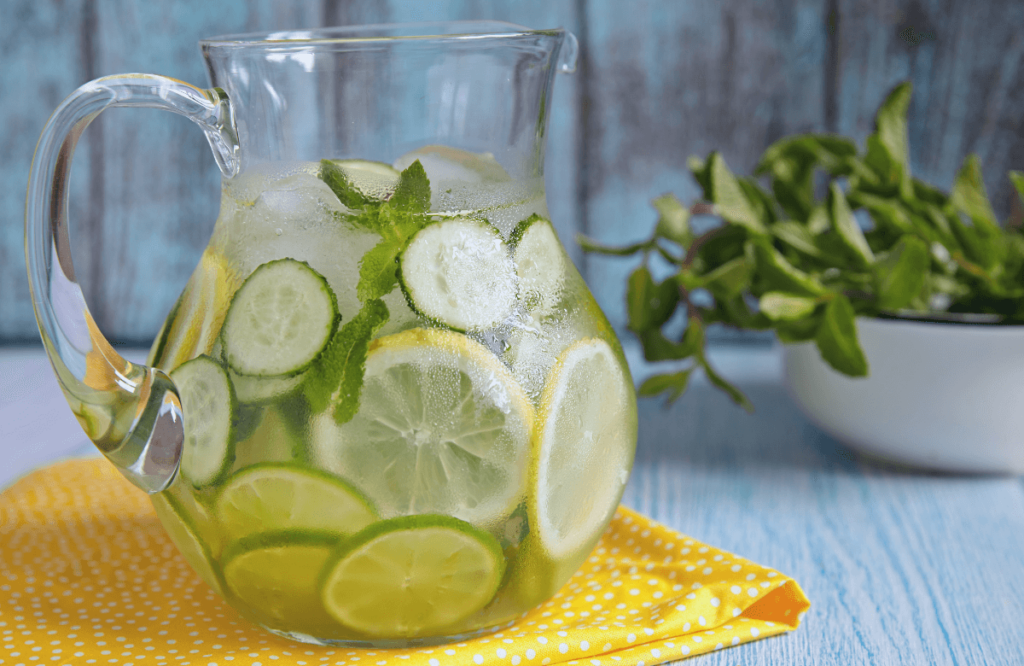
What Can You Eat During a Water Fast?
If you’re following traditional water fast, then you should eat nothing. However, some people will choose a modified version of fasting in which they drink juice or sports drinks alongside plain water. This offers a minimal amount of energy while maintaining the “detox” phase of your fast.
That being said, pay attention to your body. If you’re feeling faint or ill in any way, reach for a banana or apple. A low-calorie food that’s high in sugar and water can restore your strength and blood sugar for a time without ruining your fast.
If you still don’t feel well, eat a normal meal and try again another day. You don’t want to experience adverse events like passing out, which can lead to greater injury.
5 Possible Benefits of Water Fasting
To decide if water fasting is right for you, weigh the pros and cons. There are several potential health benefits of water fasting. Here are our top five.
1. Weight Loss
You’re likely reading this article because you’re wondering if weight loss is possible from fasting. If you’re focusing on the scale, you’ll see a dip in numbers.
Studies have shown that water fasting can help your body “detox” extra fluids and some fat cells. However, the research is limited, so it’s hard to tell how much fat you can lose and whether or not you’ll sustain the weight loss after your fast ends.
Additionally, weight loss from water fasting is only sustainable if you continue eating a healthy diet and maintain a caloric deficit for a time. Otherwise, you’ll likely gain everything back within a few days of overeating.
2. Might Reduce Blood Pressure
Though the research is minimal, some studies indicate that water fasting can benefit systolic blood pressure. These findings took place in a controlled study in which patients were monitored closely by medical professionals.
3. Could Promote Metabolic Hormones
Hormones like leptin and insulin play a huge role in the way your body’s metabolism works. Insulin is important for pulling nutrients from your blood. Leptin signals to the brain that you’re full and don’t need to eat more. Boosting these hormone levels can promote your metabolism.
Water fasting could increase your body’s sensitivity to these two hormones, improving your metabolism and helping you to avoid overeating when you’re back to your normal routine.
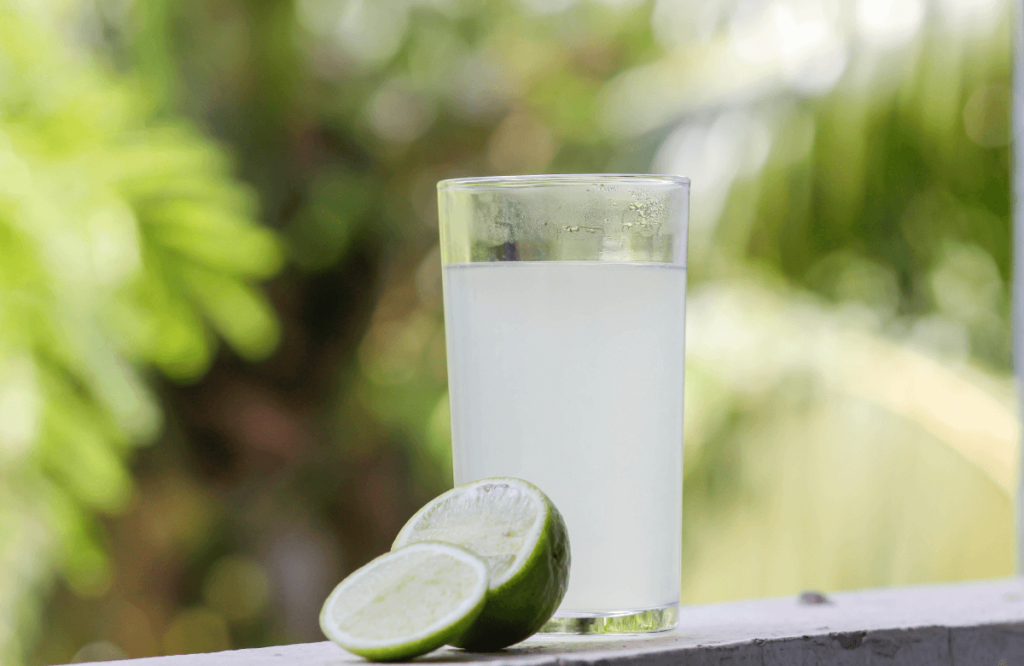
4. Could Reduce Disease Risk
If water fasting can reduce blood pressure, it follows that it could also reduce the risk of other diseases including heart disease and stroke.
Risk factors of certain cancers may also decline. Some research shows that fasting can help protect the heart and other cells from free radicals. And some cancer patients use water fasting to improve the impact of chemotherapy.
While the studies behind water faster are limited, these findings are promising.
5. Could Boost Autophagy
If you’re not familiar with the term “autophagy,” you’re not alone, so we’ll break it down for you (pun intended). Autophagy occurs when your body’s cells break down and are recycled. There’s a link between autophagy and the prevention of heart disease, Alzheimer’s, cancer, and other diseases.
It’s important to note that most of the findings surrounding water fasting and autophagy have been found in animal studies, so there’s no empirical evidence that the same effect will occur in humans. However, anecdotal evidence from healthy people participating in water fasting shows that it can have positive health effects.
5 Possible Dangers of Water Fasting
Going without food for too long or in the wrong manner can certainly be dangerous. It’s important for you to fully understand the risks before diving in.
1. More Likely to Lose Water Weight and Muscle Mass
Restricting your calorie intake to this extent will almost certainly lead to rapid weight loss. However, you’ll likely shed water weight and carbs first, which isn’t a lasting form of weight loss.
Additionally, you might lose muscle mass within just a couple of days. Because this isn’t the kind of weight you hope to lose long-term, you could bounce back to your original weight relatively quickly.

2. Could Lead to Dehydration
How could water fasting make you dehydrated, you might ask? Well, a lot of the water your body consumes daily comes from the foods you eat. If you’re not replacing that water during your fast, you could end up dehydrated.
As a result, it could make you feel unwell, including dizziness, headaches, and low blood pressure. You could also see a dip in productivity and motivation, which can make it hard to maintain your weight loss goals.
The simple solution is to ensure you’re drinking enough water, but you’ll need to monitor it carefully.
3. Vertigo or Fainting
Not eating is an easy way to develop low blood pressure, which can easily lead to vertigo or even fainting. If you’re on your feet a lot or you need to exert a little more energy than normal, water fasting is not wise.
If you experience this condition, also called orthostatic hypotension, it’s vital that you avoid driving or operating heavy machinery.
4. Risks to Existing Medical Conditions
Certain people with existing medical conditions should not attempt water fasting, even if it’s only for a short time. Even short-term water fasting can aggravate conditions like gout, eating disorders, low blood pressure, diabetes, and a few other illnesses.
If you believe water fasting can benefit you, but you have an existing medical condition, never attempt to water fast without medical supervision.
5. Could Lead to Binge Eating
If you’re trying to start your diet or work through a weight loss plateau with a water fast, know that there’s a risk of binge eating afterward. You might have intense cravings that lead to binging. You might gain back everything you lost within the first day or two of eating everything in sight.
This is also a big risk for those who are at risk for eating disorders.
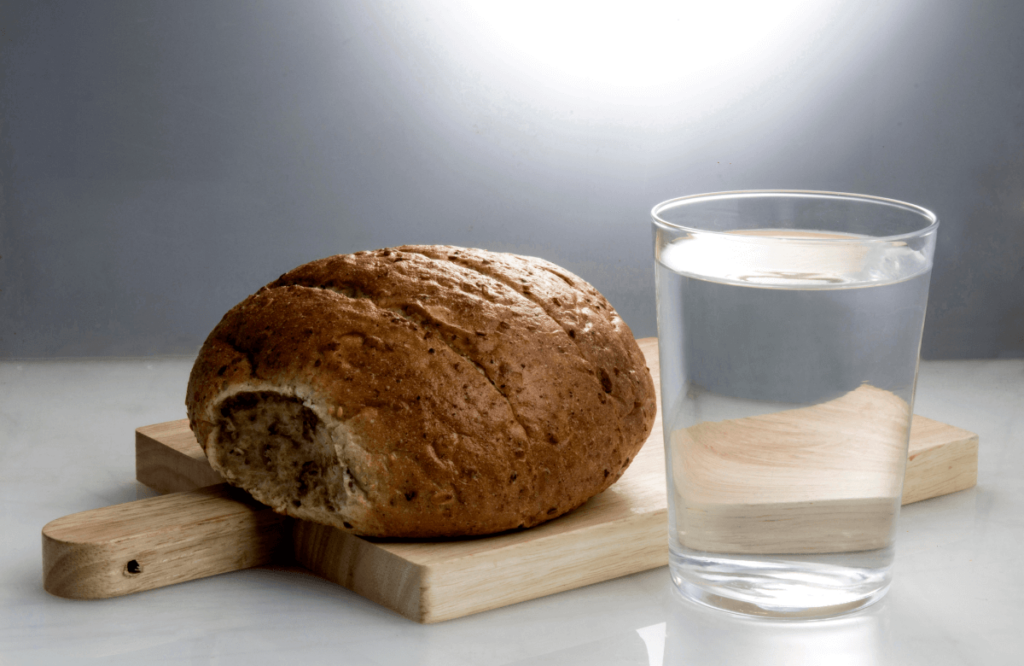
How to Water Fast Safely
Because of various health risks, keep safety at the forefront of your mind. It’s always best to start your fast by consulting with a trusted healthcare professional first. They can factor in your health risks and help you determine if you’re a good candidate for fasting.
When you’re medically cleared to fast, set a time frame for the process. Unless otherwise directed, medical professionals recommend fasting for no more than 72 hours at a time. Give your body plenty of time to recover between sessions.
Keep your water bottle full, and ease back into regular meals when your fast is over. If you feel any adverse health effects from fasting, consult a doctor and consider ending your fast early to avoid more serious consequences.
How to Safely End Your Fast
Give your body time to get used to eating foods again before diving into your regular diet. Your body won’t be quite used to eating solid foods in normal quantities, so start with smoothies, yogurt, or slices of bread. Eat something small again in a couple of hours until you’re ready to eat normally.
Will Water Fasting Help You Lose Weight Long Term?
While you will lose weight with water fasting, there’s no guarantee it will be a long-term solution. Most people who lose weight during this time don’t keep it off, as it’s usually water and carb weight that falls off first.
It can be a good way to jumpstart a healthier lifestyle if you have the self-discipline to keep up with it. But there are no shortcuts to losing weight and don’t expect water fasting to be the solution.
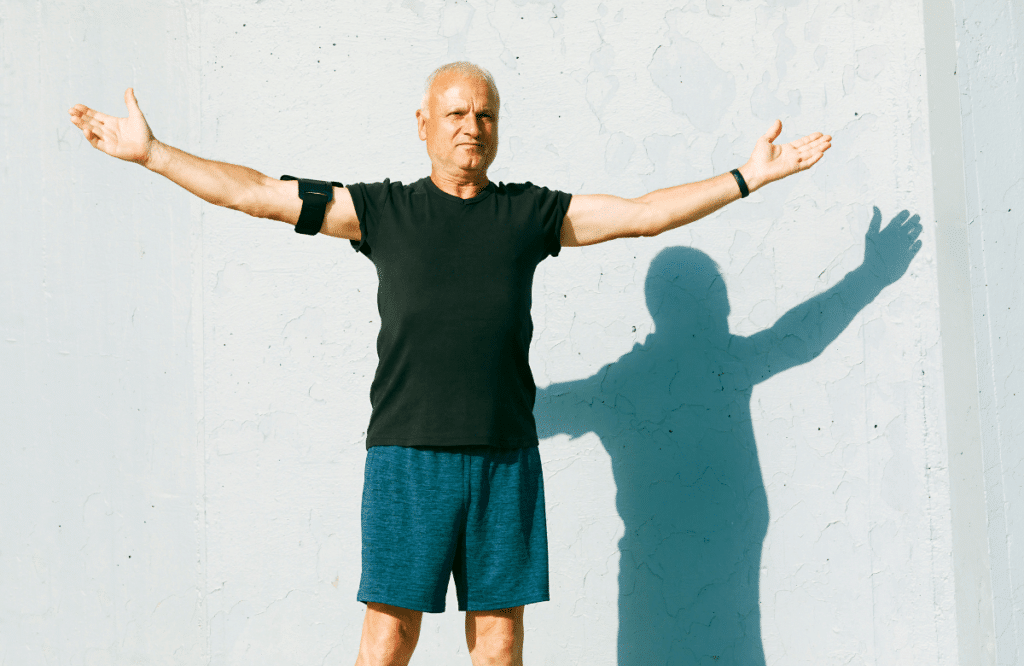
Who Shouldn’t Try Water Fasting?
Those with certain medical conditions should be prohibited from fasting. The primary conditions to avoid include:
- Pregnancy or breastfeeding
- Gout
- Diabetes (types 1 and 2)
- Eating disorders
- Old or young age
If these conditions apply to you, either choose not to fast or consult with a medical professional to understand the risks to your health.
Is Water Fasting a Healthy Choice for You?
Now that you’ve been given the information about water fasting and its potential effects on you, you must decide if water fasting is healthy and a good option for weight loss.
Because of the lack of research surrounding water fasting, it’s difficult to say if water fasting will be a safe and effective form of weight loss. In most cases, intermittent fasting is far more effective. It’s safer and seems to be more effective long term.
Intermittent fasting is when you go for a specified amount of time without food. Usually, you’ll fast 8-16 hours per day. You’ll set a specified window for eating each day so that you’re not snacking late at night or binging at work. It can be more effective for burning fat stores because most healthy people can do it long-term without lasting side effects.
So while you might enjoy short water fast from time-to-time, it may not be a wise extended option. Consider fasting during specified hours of the day instead.



